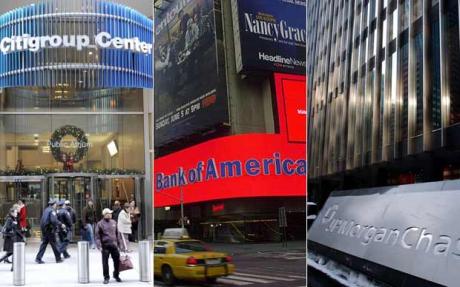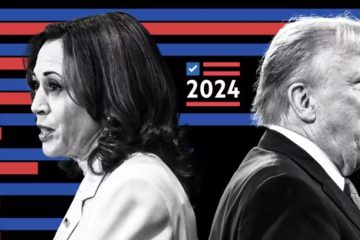While delegates at the Republican National Convention were being entertained by the ramblings of conservative luminaries as Scott Baio, Antonio Sabato Jr., and Melania Trump Monday night at Cleveland’s Quicken Loans center, the lobbyists, party bigwigs, and D.C. powerbrokers were at exclusive parties closed to the average convention-goer.
Probably the most exclusive party on Monday was at Cleveland’s beautiful old courthouse, which was hosted by The Distilled Spirits Council of the United States (DISCUS), the lobbying group representing producers and marketers of liquor sold in the U.S. Besides the setting and the food spread, the obvious draw to this event was, well, the liquor. Interns did shots of Patron with their bosses, while lobbyists tried desperately to find anyone worthy of pitching. They gossiped, drank, complained about everything from housing prices in D.C. to the weather—and then drank some more.
One thing they weren’t talking about, though, was the Republican Party Platform, which passed by delegates earlier that day on the convention floor. The platform is basically a manifesto that lays out what the party stands for and what it wants. All the usual issues were there, like protection of the Second Amendment along with a call to end abortions. But wedged in the document was one new and very odd provision—a call to bring back Depression-era rules that would break up big banks:
“We support reinstating the Glass-Steagall Act of 1933 which prohibits commercial banks from engaging in high-risk investment.”
Now “Glass-Steagall” is one of those terms that gets batted around that everyone seems to have heard of but no one really understands, especially in Washington, where understanding of finance and economics is abysmal. One senior Republican Congressional staffer at the DISCUS party said he didn’t understand the big deal over reinstating Glass-Steagall: “Oh, the banks will just spin off those problematic divisions and everything will be fine, right?”
Um, no.
The law, which was created in 1933 at the height of the Great Depression, essentially erected firewalls between commercial banks, which take deposits and make loans, and investment banks, which underwrite securities. It was essentially meant to make sure that your deposits weren’t being used by securities dealers to gamble in the stock market.
But in 1999, the Republican Congress, along with the Democratic White House, worked together to repeal the Glass-Steagall Act, allowing banks to merge their various divisions together under one big umbrella. It was done in a bid to help American banks grow larger, so they could better compete on the world stage against international banks that did not have this division between banking services.
While Democrats signed off on the measure, it was really the brainchild of Republican Senator Phil Gramm of Texas, who wrote the law in conjunction with his Republican counterparts in the House, Rep. Jim Leach of Iowa and Rep. Thomas Bliley of Virginia. The Gramm-Leach-Bliley Act epitomizes the Republican mantra calling for decreased government oversight over business. While the banks weren’t totally free to do as they pleased, they now at least had the ability to determine how big they wanted to be.
As expected, the discarding of Glass-Steagall led to consolidation in the banking sector, allowing for the creation of the massive financial conglomerates we know today. While there are still 6,000 or so banks in the U.S., four of them, J.P. Morgan Chase, Bank of America, Wells Fargo, and Citigroup, together hold around 90% of the nation’s bank deposits, the vast majority of which are backed by the government through FDIC insurance. If any of these banks fail, the U.S. would be on the hook for most of that cash, which could cost taxpayers billions of dollars.
Some say these banks have become “Too Big To Fail” as they are “too big to bail.” They are correct. Nevertheless, even if the banks broke up with the reinstatement of Glass-Steagall, their various pieces would still be too big to fail. After all, the financial crisis of 2008 was set off by the collapse of two pure-play investment banks—Bear Stearns and later Lehman Brothers. In reality, the interconnectedness of our banking system makes it so that any failure could have catastrophic consequences for the economy as it would shake Americans’ faith in the financial system, leading to disastrous bank runs.
Given all this, efforts to reinstate Glass-Steagall have largely gone nowhere. Instead, Congress has passed new rules (Dodd-Frank) that ban certain types of trading by the banks that could be problematic. It also bars banks from participating in highly speculative activities such as hedge funds and private equity deals. This has made banking far more boring and less profitable than in the past, but it has been successful, so far, in helping to prevent another global financial meltdown.
Despite this, there are still a few who insist that Glass-Steagall must be brought back. But they aren’t from the far right—they’re from the far left, namely, Sen. Bernie Sanders of Vermont and Sen. Elizabeth Warren of Massachusetts who have been railing for years against the evils of the big banks for years and want them broken up.
Breaking up the banks is government meddling in the economy, something traditionally reserved for liberals and socialists—not conservatives and capitalists. So why are Republicans championing Glass-Steagall? Was it an accident? Do they not understand what it would mean to the U.S. economy? This is the sort of ignorance reserved for a drunk staffer at a party, not for the Republican Party’s official platform.
The banking system isn’t perfect but changes need to be made using a scalpel, not a sledgehammer. Reinstating Glass-Steagall today would probably create financial mayhem of the likes not seen since, well, the Great Depression. The banking system is fragile because the U.S. dollar is backed purely by faith. Shaking that faith would mean bedlam for the world economy. Republicans need to sober up and understand this if they want to still be known as the “pro-business” party. Otherwise, we’re all in for one hell of a hangover.



